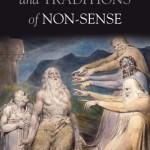We run our website the way we wished the whole internet worked: we provide high quality original content with no ads. We are funded solely by your direct support. Please consider supporting this project.
What is the significance of Acts 27:10-44?
This is the passage deal with Paul’s ill-fated voyage to Italy as a prisoner. The ship ran into very bad weather and Paul announced, “Men, I can see that our voyage is going to be disastrous and bring great loss to ship and cargo, and to our own lives also” (vs. 10). As he reminded them later on, he was trying to get the sailors to stop sailing (vs. 21).
Unfortunately, the sailors didn’t listen (vs. 11). Why would they? They’re seasoned sailors and Paul’s a missionary prisoner. But several days later their ship encountered a hurricane force wind (called “the Northeaster”, vs. 14) which eventually caused the seasoned sailors to abandon any hope of survival ( vs 20). But an angel of the Lord appeared to Paul and told him that God was mercifully going to protect him and everyone else on the ship (vs. 24). Paul told the men they should have listened to him (vs. 21), but now that they found themselves in this mess, he told them to have faith in God and remain courageous (vs. 22). They’d lose the boat, but all on board would be saved.
When it looked like the ship might run aground, some sailors tried to escape on a lifeboat (29-30). Interestingly enough, Paul then told the captain, “Unless these men stay with the ship, you cannot be saved” (vs. 31). The ship eventually crashes, and some of the soldiers planned on killing the prisoners to prevent them from escaping (vs. 42). But the captain, now very impressed with Paul, wanted him spared so he did not allow the soldiers to kill him (vs. 43). In this way “everyone reached land safely” (vs. 44).
It’s important to notice all the contingencies involved in this story. Unless we suppose that Paul had better sailing skills than the seasoned sailors, it seems it was by divine inspiration that Paul announced that the voyage would be disastrous if they kept sailing (vs. 10). So he tried to get them to stop. It seems like it was God’s will that they stop when Paul told them to, and Paul himself chastises them for not listening to him (vs. 21). Once they found themselves in trouble, however, God sent an angel to reassure them they were going to be safe. Yet, even this promise was conditioned on whether or not all the men would have faith, stay courageous, and not abandon the ship (vs. 29-31). A straightforward reading of the passage suggests that, had the sailors not stayed with the ship, the promise of the angel would have been revoked and lives would have been lost.
So, while it seems it was a pre-settled certainty that Paul would sooner or later stand trial before Caesar (vs. 24), the passage indicates that there were a number of variables which affected when and how Paul would end up there, as well as who would or would not survive the trip with him. The passage, in other words, suggests that the future is partly settled, but also partly open.
Category: Q&A
Tags: Open Theism, Q&A
Topics: Open Theism
Verse: Acts 27
Related Reading

God of Sense and Traditions of Non-Sense
As the title suggests, in his book, God’s Problem: How The Bible Fails to Answer Our Most Important Question – Why We Suffer, Bart Ehrman argues that the Bible has nothing compelling to say about the problem of evil. Well, I just put down a beautifully written four-hundred and fifty page book that compellingly argues…

Non-Violence and Police Protection
Scott Davidson via Compfight Question: I am a President of a State University. As a frequent podcaster of your sermons and reader of your books, I’m seeking your advice on a matter. Because our campus is some distance from the police headquarters in our city, many within the State University are arguing that we should…

Reasons God Does Not Control Everything
First, the belief that God is all-powerful does not mean that God exercises all power. It only means that God is the ultimate source of all power. Fallen people may value the ability to control others and project this attribute onto God (Matthew 20:25-28). But the cross breaks all of our fallen assumptions about what…

How can people who believe the open view trust a God who doesn’t control the future and doesn’t know for sure what will happen?
It’s true that according to the open view of the future things can happen in our lives which God didn’t plan or even foreknow with certainty (though he always foreknew they were possible). In this view, trusting in God provides no assurance that everything that happens to us will reflect his divine purposes, for there…

Sermon Clip: Does Romans 9 predestine you to Hell?
Did God predestine you to Hell? Can he even do that? In this short sermon clip, Greg Boyd talks about his own struggles when trying to understand Romans 9 which on the surface seems to imply that God determines who goes to heaven and hell. In the full sermon, Greg takes a deep look at…

